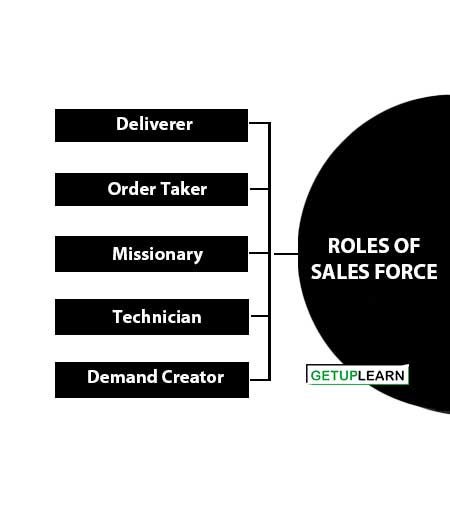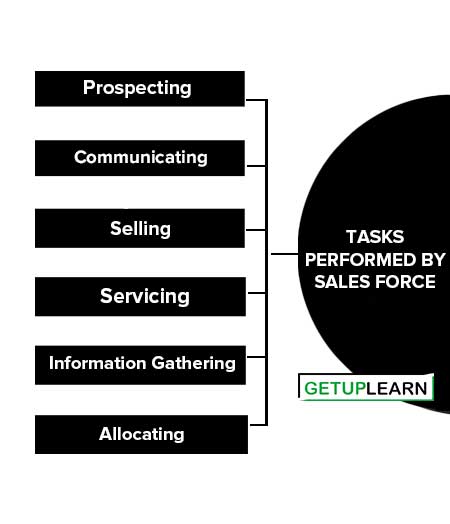The prime responsibility of the sales department is to build up a higher volume of sales. This higher volume of sales leads to greater production in the factory and the company achieves economies of scale. This helps in reducing costs and making the products of the company more competitive in the market.
This leads to the automatic achievement of the other two objectives that is increased profits and continued growth of the company. The top management delegates the responsibility of achieving the sales objectives to the marketing department which ultimately directs the sales department to carry out activities in order to achieve them.
The sales managers thus play a key role in the company because the entire growth of the company depends on their ability to achieve the stated objectives. The sales managers also carry out the important task of the appraisal of market opportunities and convey the same to the company.
This helps in designing the products which customers would like to possess. This helps the company in achieving greater customer satisfaction and hence greater growth in sales. The forecasts made by the sales department serve as the basic outline for carrying out the entire planning of the company.
Table of Contents
Roles of Sales Force
In a company, the sales force has to cover a broad range of positions. The actual nature of the role and the position may vary with the company. These are the roles of sales force:

Deliverer
In many cases, the role of salespersons is mainly to deliver the products to the customers. This type of role is often played in companies selling milk, bread, etc where the product is of generic nature and it is the availability of the product that decides the selling of the same.
Even in soft drinks, the available product sells and the sales personnel have the main task of delivering the product.
In the present age of the Internet, most companies are offering the facility of placing orders via the Internet. In such companies, the delivery of products is of prime importance and the sales personnel have to undertake them.
Order Taker
In some cases, the salespersons may be the order takers and the delivery of the product may be made by the dealers or through courier. In such cases, the salesmen visit the customers, show their products, and persuade the customer to purchase them.
They book the orders and convey them to their distribution department or their dealers. This practice is common in companies selling consumer goods. The salesmen visit the shops and book orders and convey them to the dealer who delivers them to the customers.
This bifurcation of delivery and order collection activity is done so that the salesperson can devote more time to understanding the customers and the market activity. Also, the salesperson might be working in a wide territory and the delivery is done by the distributor’s representative.
Missionary
In certain cases, the salesmen are not directed to book the orders or deliver them. Their main task is just to build goodwill and create a favorable attitude in the minds of the customers. They might also be directed to educate the potential customer.
In such cases, they act as missionaries i.e. making market calls with a broader mission and not merely booking orders. Medical representative visiting doctors and informing them about their products plays such a role.
They do not book orders but educate the doctors about their products and the benefits they offer. This practice allows the salesperson to visit and service customers in a large territory.
Technician
In certain cases where the product is technical in nature, the salesperson may have to act as a technical consultant and not merely focus on booking orders. This activity is witnessed in the companies making plants and equipment that involve high technical knowledge on the part of the seller as well as the purchaser.
Demand Creator
Often, the sales personnel have to stimulate the demand through product demonstration or customer education.
For example, the demand for vacuum cleaners was actually created by the salesmen by visiting the customers. Similarly, the role played by insurance agents by educating the customers helps them in selling the insurance policies.
Tasks Performed by Sales Force
The nature of tasks performed by the sales personals varies from company to company depending upon the objectives laid down for them. For example, the sales representatives of IBM are responsible for not only selling the computer but also for its installation and degradation.
Similarly, the sales representatives of AT&T are responsible for developing, selling, and protecting accounts.
In addition to the difference in company objectives, other factors such as the state of the economy, the market orientation of a company, etc. also determine the nature of tasks performed by the sales force. In general, the sales personnel perform the following tasks:

Prospecting
The sales force has to be on the lookout for new customers always. The customers who have the prospect of purchasing must be identified and persuaded to purchase the products of the company.
The new customers serve as a base for the growth of sales volumes and so they need to be identified and converted from a prospect to a customer.
Communicating
Effective communication is crucial for the sales force in conveying information about products and services, both within and outside the organization. Within the company, they take instructions from managers, pass customer orders to distribution, and coordinate with the accounts department for timely payments.
They also relay customer complaints to the production and quality control departments. Externally, they meet customers, distributors, and retailers to collect orders and payments. Furthermore, they share market intelligence on competitors to aid senior managers in developing effective strategies. Mastering communication is essential for successful sales representatives.
Selling
This is the core function of the sales representatives because all the activities must ultimately culminate into sales. The sales representatives have to very skillfully master this art of approaching the customers, presenting their product, convincing them about the benefits of the products over the competing products, answer the quarries and objections of the customers.
The sales representatives have to learn the art of negotiations and closing the deal. The order thus collected must be conveyed to the company. The responsibility of selling does not end here. The sales persons have to ensure product delivery and customer education.
Servicing
The task of the sales force does not end after taking the order. The customers have to be visited again in order to resolve their difficulties or complaints. In case the product is not performing well, the sales representatives have to get the same repaired.
It is also possible that the customer will have to be educated about using the product. Salespeople find it easier to sell their products, to existing customers. So, once a relationship is established between the salesperson and the customer, it has to be strengthened with the help of services.
Information Gathering
The sales personnel have to gather information about the customers and the market conditions and report the same to the company. Market information helps the company in fighting competition.
The information about the customers helps the company in identifying customer needs and designing the products, which the customers want. This helps the company is getting an edge over the competitors.
Allocating
The sales representatives have first-hand information on the market conditions. So, their opinion is significant in distributing or allocating the products to the customers at times when the product is in short supply.
FAQs About the Roles of Sales Force
What are the roles of sales force?
The following are the roles of sales force:
1. Deliverer
2. Order Taker
3. Missionary
4. Technician
5. Demand Creator.
